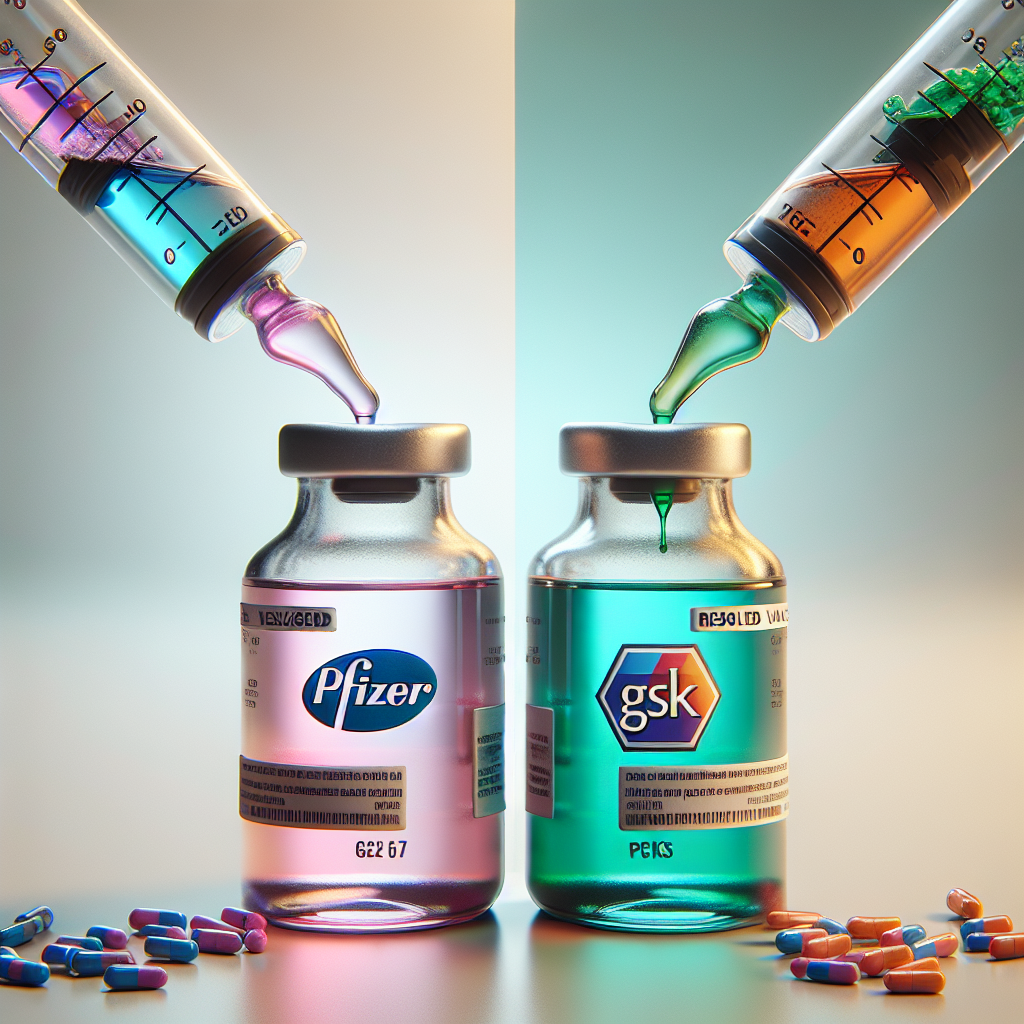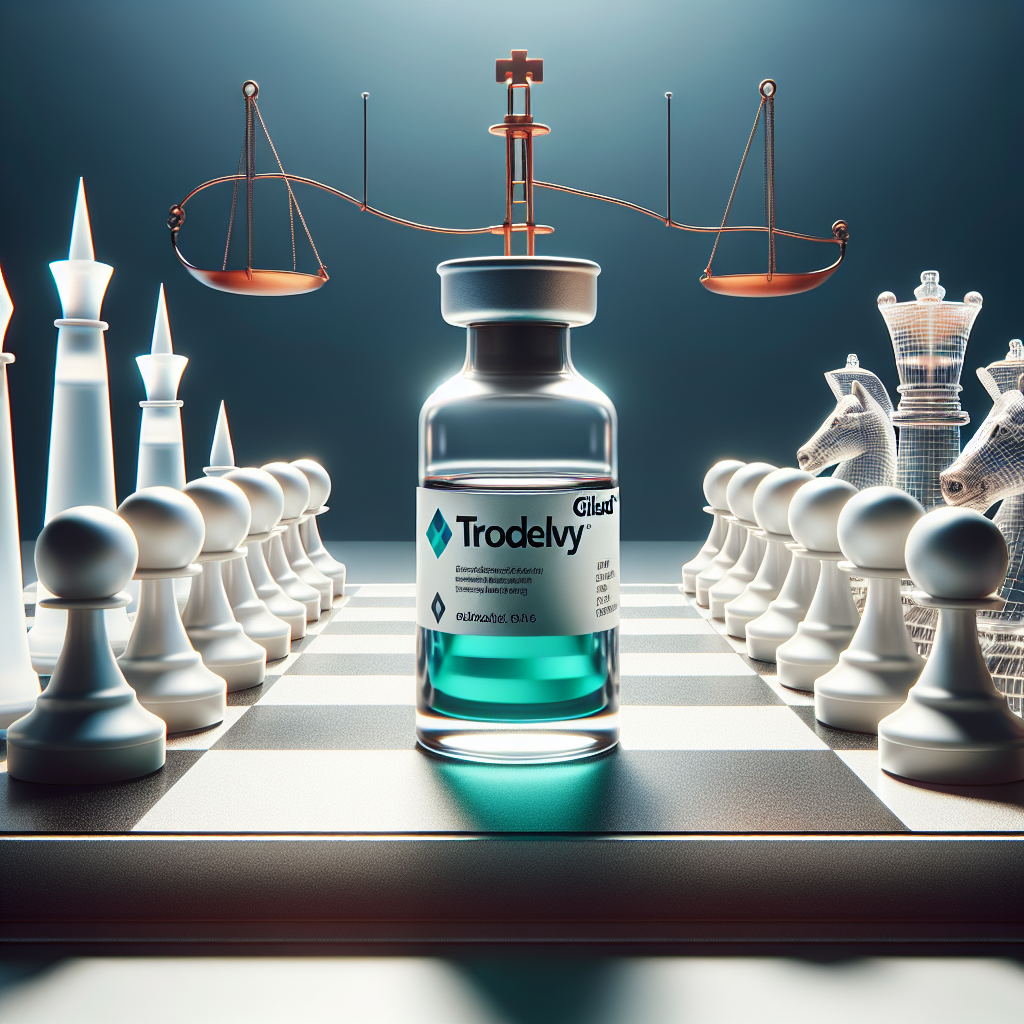GSK and Pfizer Resolve RSV Patent Feud Amid Vaccine Market Uncertainty
The landscape of the pharmaceutical industry is rapidly evolving, with companies often facing significant challenges and regulatory hurdles. A recent pivotal development has emerged in the respiratory syncytial virus (RSV) vaccine sector, as GSK and Pfizer have resolved their patent dispute concerning their respective RSV vaccines. This decision comes amidst a tumultuous period for the RSV vaccine market, now characterized by a considerably diminished market size and regulatory uncertainty.
The Patent Dispute Settlement
According to a filing in the U.S. District Court in Delaware, GSK and Pfizer have moved to terminate the patent lawsuit that centers around their RSV vaccine products. This resolution follows a ruling from a U.K. high court in November, which found that GSK’s patents relating to its RSV vaccine were invalid. Initially, GSK had brought forth the lawsuit in 2023, shortly after the FDA granted approvals for both GSK’s RSV shot, Arexvy, and Pfizer’s competing product, Abrysvo.
In its legal challenge, GSK claimed that Pfizer’s vaccine infringed on four of its patents associated with the antigen technology utilized in Arexvy. At the time, the outlook for the RSV vaccine market appeared promising, with Arexvy achieving impressive sales of $1.5 billion within its first year of commercialization.
The Rapid Decline of RSV Vaccine Sales
However, the situation took a drastic turn in mid-2024 when a Centers for Disease Control and Prevention (CDC) advisory committee made the decision to narrow its vaccination recommendations for RSV. Both GSK and Pfizer felt the immediate repercussions of this regulatory shift. In the last quarter of 2024, GSK reported a staggering 70% year-over-year decline in Arexvy sales, while Pfizer’s Abrysvo experienced a 62% drop in revenues. This decline affected not only the sales dynamics of these drugs but also the market perception of RSV vaccines as a lucrative investment opportunity.
Moreover, Moderna launched its RSV vaccine, mRESVIA, in May 2024, but it had a muted market entry, generating only $15 million in sales during the fourth quarter. This lackluster performance led Moderna to initiate a $1.5 billion cost-cutting initiative, indicating the struggle faced by companies entering the RSV vaccine market in light of these developments.
Political Influence and Public Sentiment
The challenges in the RSV vaccine market are further compounded by broader political and regulatory shifts. Vaccine skeptic Robert F. Kennedy Jr. was recently appointed as the new secretary of the Department of Health and Human Services (HHS). Shortly after taking office, RFK Jr. has implemented an anti-vaccine stance, leading to the postponement of a CDC vaccination committee meeting and the cancellation of an FDA advisory committee meeting. In addition, this political climate resulted in the abrupt departure of Peter Marks, M.D., Ph.D., the long-standing director of the FDA’s Center for Biologics Evaluation and Research, following differences in opinions regarding vaccine policies.
The impact of these personnel changes was felt acutely in the industry, as the FDA missed its deadline to decide on the approval for Novavax’s COVID-19 vaccine candidate due to unusual interventions by political appointees. The message is clear: vaccine companies, especially during this transformative period in U.S. health policy, face considerable uncertainty.
The Future for GSK and Pfizer
With the settlement of their patent dispute, both GSK and Pfizer now confront the reality of a contracting market for RSV vaccines. For drugmakers to justify continuing patent litigation, the potential for significant financial gain must outweigh the costs involved. GSK’s suit against Pfizer aimed to secure damages and potentially royalties, alongside a long-term injunction against the commercialization of Pfizer’s RSV vaccine in the U.S. Nevertheless, while the short-term outlook is challenging, both companies may find new opportunities as they continue navigating patent disputes—most notably, ongoing litigation surrounding mRNA technologies used in COVID vaccines.
Conclusion
Looking ahead, the struggles faced by pharmaceutical companies in the RSV vaccine arena reflect a broader trend of uncertainty within vaccine development sparked by political and financial pressures. Investors should remain vigilant and consider how evolving regulatory environments, political leadership, and public sentiment may impact the pharmaceutical landscape, particularly for vaccine manufacturers. As the situation unfolds, strategic insights into the direction of GSK and Pfizer will be critical for potential investors and stakeholders in the biotech field.
















